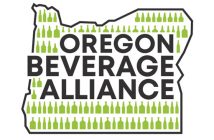(Photo courtesy of CrossPointe Capital)
Artificial intelligence (AI) is one of the most exciting and transformative technologies of our time. From Siri to self-driving cars, AI is becoming ubiquitous in our lives. As a business owner, it’s essential to understand the past, present, and future of AI as it has significantly impacted the way businesses operate. Here’s some insight into the evolution of AI over the years and its impact on society, jobs, and businesses.
A Brief History of AI — How We Got Here: The concept of AI dates back to the 1950s when computer scientists began working on creating machines that could mimic human intelligence. The first AI program was designed to play chess in the 1950s. Since then, it has come a long way, with developments that include machine learning, natural language processing, and more to create intelligent machines. The breakthrough in AI came in 2012 with the development of deep neural networks, which has allowed machines to “learn” from vast amounts of data.
What Is AI and How Does It Work Today: AI refers to the simulation of human intelligence in machines that are programmed to think and act like humans. It employs several techniques, including machine learning, natural language processing, and robotics. Today, AI has numerous applications such as personal digital assistants, self-driving cars, fraud detection, and even robots that can perform complex surgeries. AI works by analyzing data, identifying patterns, and making informed decisions based on that data.
Emerging Technologies in AI — What’s Next: AI is continuously evolving and has the potential to revolutionize our world further. The future of AI looks incredibly promising, with new and emerging technologies like quantum computing, blockchain, and the Internet of Things (IoT). Quantum computing has the potential to solve problems that traditional computers can’t, while blockchain technology can enhance AI security by creating tamper-proof data. As AI continues to evolve, we can expect to see more innovative technologies that are powered by intelligent machines.
Real World Applications of AI and Machine Learning: AI and machine learning are already being used in various real-world applications. AI has applications in healthcare, finance, manufacturing, transportation, and many others. For example, in healthcare, AI is being used to develop disease diagnosis tools, machines that can monitor vital signs, and robots that can perform surgeries. In transportation, self-driving cars are already in development, and machine learning algorithms are used to optimize traffic and transportation systems.
Challenges and Opportunities for the Future of AI: There are challenges and opportunities that come with the continued development of AI. One of the primary challenges is the fear of job loss due to automation. The flip side of this for business owners is that AI offers opportunities for workforce efficiencies. While AI will inevitably change the workforce, it will also create new job opportunities in programming, data analysis, and software development. Another challenge is the ethical considerations of AI, which include intellectual property protection, privacy concerns, transparency, and bias in decision-making. Addressing these challenges is essential to ensure that AI is developed ethically.
The Impact of Artificial Intelligence on Society, Jobs and Businesses: AI has already had a significant impact on businesses, society, and jobs. For example, AI has changed the way businesses operate by increasing efficiency, reducing costs, and enhancing customer experiences. It has also impacted jobs, with automation potentially leading to job losses in certain industries. However, automation will also create new and different job opportunities. AI has also benefited society by enhancing healthcare, improving transportation, and creating more sustainable cities.
Like it or not, AI is here to stay. It will become rapidly more pervasive. AI is already changing the face of commerce and business operations as we have historically known them. AI is rapidly evolving (that’s its main design characteristic) and it is transforming our world, especially in terms of its applicability for supporting repetitive, relatively predictable transactions and tasks. It’s essential for us as business owners to familiarize ourselves (quickly) with AI and its potential to impact our businesses. While there are challenges that come with the development of AI, the opportunities it presents are enormous. Our job as entrepreneurs is to navigate the challenges and seize the opportunities. Both will come fast and escalate. As we look to the future, it’s crucial to remember that while AI can complement human intelligence and abilities, it cannot replace it entirely. AI technologies will continue to advance, and we must ensure that they are ethically and responsibly implemented to create a better future for everyone. In other words, it’s our job to stay smarter than the artificial intelligence we’ve created.
In full ironic transparency, this article was written using an Artificial Intelligence application based on six spoken input questions: 1. History of AI, 2. What Is AI, 3. What’s Next with AI, 4. Applications of AI, 5. Challenges and Opportunities with AI, 6. The Impact of Artificial Intelligence. The body was “written” in less than 30 seconds as I drove across Eastern Oregon on my way to six days “off-grid,” navigating the Owyhee River springtime whitewater. I’m happily trading AI for RI (River Intelligence).
Michael Sipe is a mergers and acquisitions advisor and business coach.





